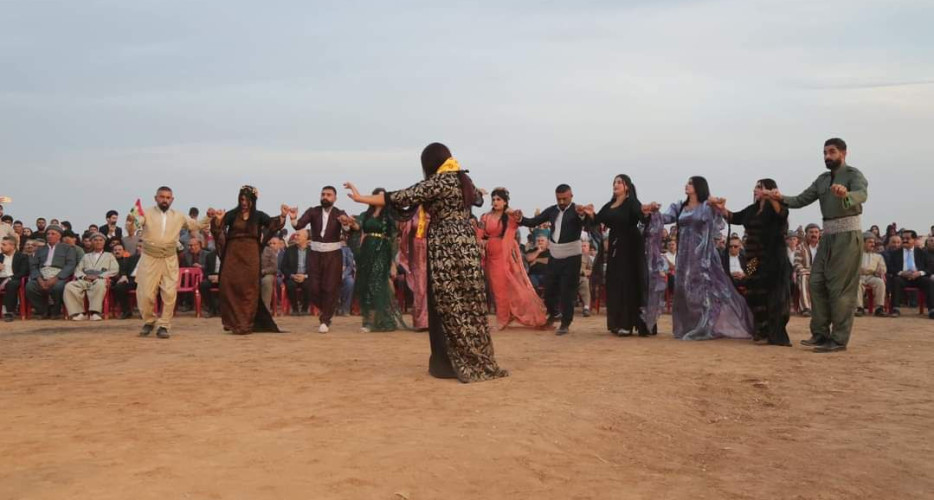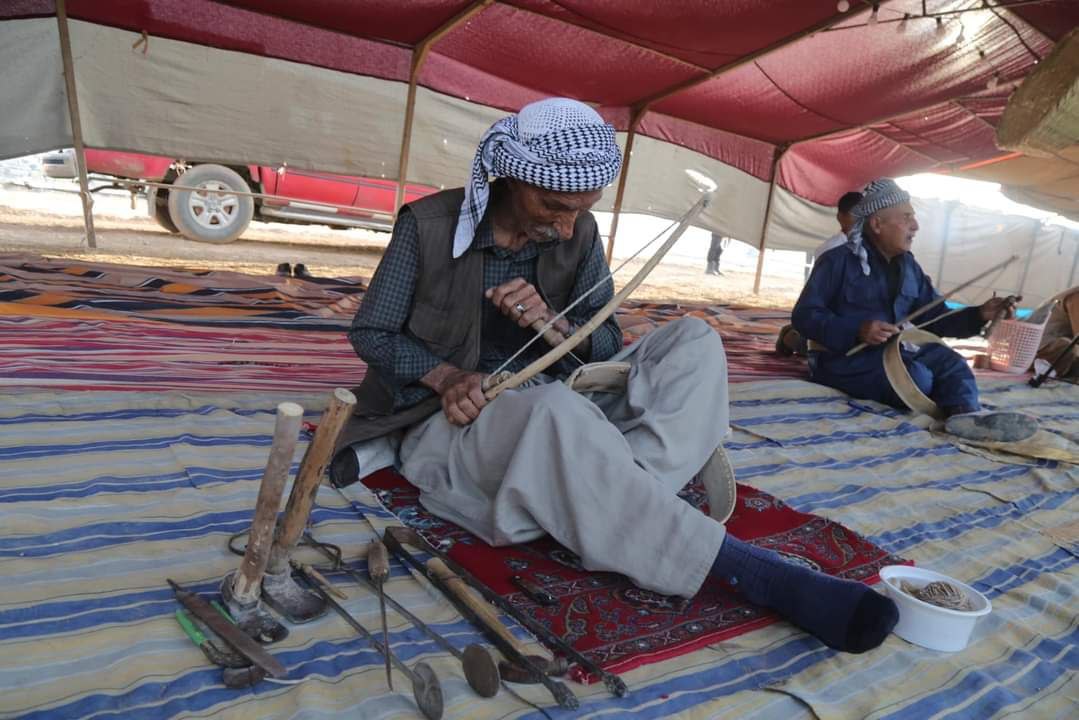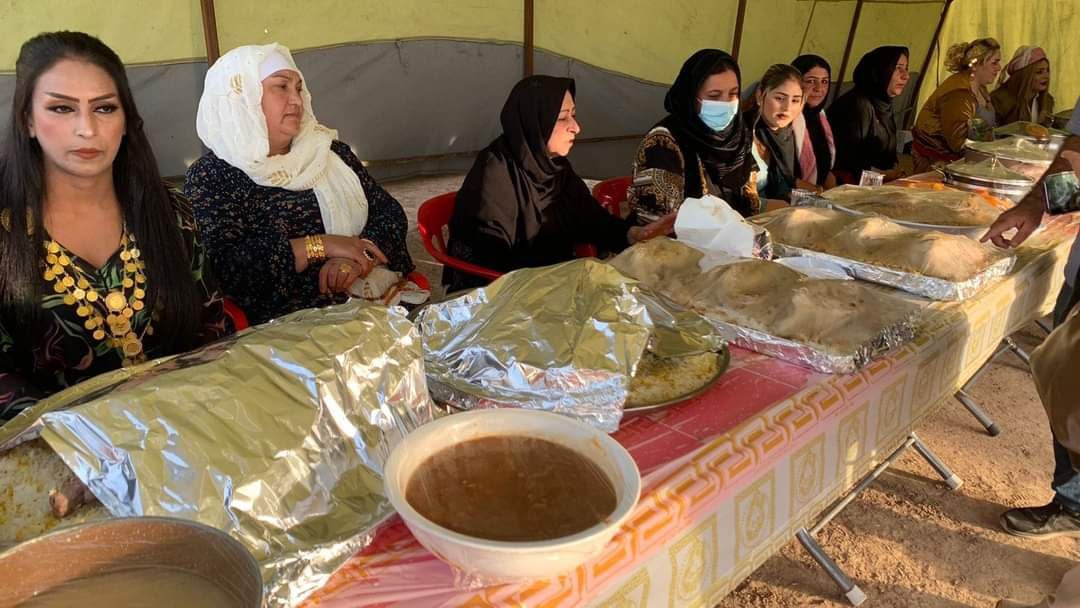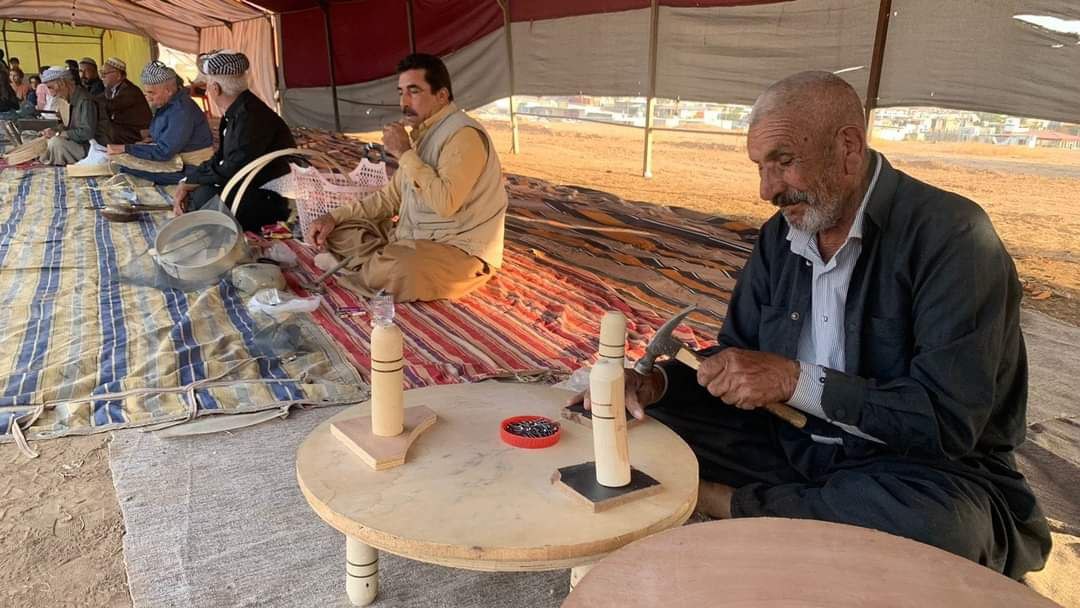
Peregraf- Ammar Aziz
Adar village in Duhok governorate has been home to thousands of Roma since 2007. The community lacks many services, which reflects the minority group’s historically marginalized status.
"Our streets have not been paved yet. In winter, they become muddy. We cannot even go to the neighboring houses. In summer, it becomes very dusty. We have lost our patience," Najman Musa, one of Adar’s residents, told Peregraf.
Musa added that the community also lacks adequate schools and health care.
"There is only one primary school and the building has not been completed. [Students] go to high school elsewhere…Patients go to other areas, like Semel or Duhok," he said.
He says he wants help from the Kurdistan Regional Government (KRG) because he is "disappointed" in Iraq’s federal government.

Festival of Romani Culture and Tradition in Duhok, October 2023
Iraqi Roma are locally known as "Doms" or "Karaj," but they prefer to be called Hosta. They are part of a larger Muslim Roma community that has members in Turkey, Jordan, and other parts of the Middle East.
In the Kurdistan Region, they were mostly nomadic, but many have become settled in places like Adar over the past two decades. Since 2007, the population of the village, which is located in Duhok’s Faida district, has grown to more than 4,000 people.
There are no exact figures on the Roma population in Iraq, but unofficial estimates from 2018 suggest that there are as many as 46,000 in the Kurdistan Region. They mostly live in Erbil and Duhok governorates, according to Zahir Younis, a representative of the Roma in the Kurdistan Region. He said that there are approximately 8,000 Roma in Duhok.

Festival of Romani Culture and Tradition in Duhok, October 2023
Roma communities are also present in central and southern Iraq, including Baghdad, Nineveh, and Al-Qadisiyyah. Historically, they have been marginalized and denied government identity cards. In 2019, however, this policy was changed and many gained official status as Iraqi citizens.
Younis recently told Peregraf that "those in the Region are all Doms and some of them recently asked to change their names to Hosta."
While residents like Musa have complaints about the services in their community, Shamoun Shimon, Duhok’s deputy governor for administrative affairs, told Peregraf that the KRG has provided services such as water, electricity, and roads to the community.

Festival of Romani Culture and Tradition in Duhok, October 2023
"The Duhok administration does not hesitate and will facilitate everything about their request to change their name from Karaj to Hosta," Shilmon said, adding that any services within the county's budget will be provided to their communities without discrimination.
In October, a special festival of Roma culture and traditions was held in Duhok. It featured handicrafts and traditional foods, as well as discussions about the community’s future. There was an emphasis on changing their name officially to "Hosta," which means "master" as a reference to the fact that many of them work as smiths and craftsmen.
Hassan Fatah, head of the Duhok General Directorate of Culture and Arts, who organized the festival, explained to Peregraf that the aim of the event was to de-stigmatize the Roma community and "to change people's opinions about them, so that they are not viewed differently."
Fatah said that I was "sure" that Duhok’s local government would implement their demands for better roads, schools, and health care.

Festival of Romani Culture and Tradition in Duhok, October 2023